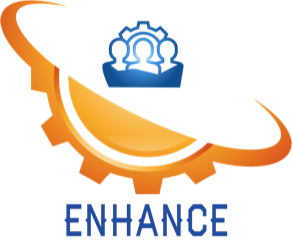What is ENHANCE story?
 Society, businesses and the global economy greatly depend upon the international maritime sector. It transports around 90% of the world’s trade and carries over 21 million passengers on cruise ships annually, generating $35.5 billion revenue in 2016. However, maritime operations carry great risks which, when things go catastrophically wrong, can have devastating impacts upon both the environment and lives, as well as generating significant financial losses.
Society, businesses and the global economy greatly depend upon the international maritime sector. It transports around 90% of the world’s trade and carries over 21 million passengers on cruise ships annually, generating $35.5 billion revenue in 2016. However, maritime operations carry great risks which, when things go catastrophically wrong, can have devastating impacts upon both the environment and lives, as well as generating significant financial losses.
As ships become larger to increase cargo and human carrying capacities, the consequences of an incident also increase, as does the exposure risk. It is widely accepted that 75%-96% of maritime incidents are attributable to human error. Technological advancements, including automation of onboard systems, have become desirable to shipping companies’ due to their contribution to increasing efficiency. However, this places further responsibility and pressure upon crews and amplifies the consequence of a single human error. Therefore, the demand for highly skilled seafarers to handle modern-day advanced vessels is rising. Between 2010 and 2015 officer numbers grew 24% compared to just 1% in unskilled seafarers.
The paradox of advanced skills requirements and seafarer shortages is placing great pressure upon the sector, increasing the probability of future catastrophic incidents resulting from a lack of appropriate skills. In addition to increased technology competencies, working in complex, dynamic systems in modern vessels with a smaller crew demands increases in other core human-factor competencies, particularly communication and team working. Thus, there is a clear and increasingly pressing need for the sector to increase the technological and human-factor core competencies of crew members to better manage complex, modern maritime vessels to avoid human errors that have the potential to deliver catastrophic outcomes.
Current approaches to training focus on the development of hard skills, such as equipment operation and understanding of regulations. However, as discussed below, these training approaches do not prepare individuals for real-world emergency scenarios. In particular, there is a lack of immersive simulation of adverse events, a lack of team training and a lack of focus on the key soft skills (e.g. communication, crisis management) that allow crews to respond effectively during incidents.
 Such challenges have been previously overcome in other safety-critical industries such as the aviation and nuclear sectors, but this learning has not been transferred to the maritime sector. In particular, our research has identified the processing industry as an ideal knowledge donor (and recipient) as it is considerably further ahead in combating human error through training and assessment and has many similarities with maritime. These challenges are not simple to overcome and will require collaboration between the maritime sector, the process industry, academia, and industry to develop a long-term model and knowledge base to boost human factors training in the maritime sector.
Such challenges have been previously overcome in other safety-critical industries such as the aviation and nuclear sectors, but this learning has not been transferred to the maritime sector. In particular, our research has identified the processing industry as an ideal knowledge donor (and recipient) as it is considerably further ahead in combating human error through training and assessment and has many similarities with maritime. These challenges are not simple to overcome and will require collaboration between the maritime sector, the process industry, academia, and industry to develop a long-term model and knowledge base to boost human factors training in the maritime sector.
ENHANCE will improve the effectiveness of human factors training in the maritime sector by combining and applying multidisciplinary, intersectoral knowledge, capabilities and world-class facilities to research, create and validate a new approach to high-level, collaborative training, which ultimately reaches the developers and deliverers of training courses and the end users themselves. We will establish a transnational academic community of cross-disciplinary experts to lead a major research effort both during this project and beyond, ensuring continuous improvement of maritime training.
Our approach is based on high-risk scenario-based maritime simulations, incorporating novel assessment and continuous skills improvement methods. Through applying systems thinking, this approach provides the ideal means of combining technological and human-factor core competency training and assessment focused upon combating human error while generating greater scientific and industrial understanding. It will also be present-day and future-focused, accounting for developments in autonomy and other emerging smart technologies.

